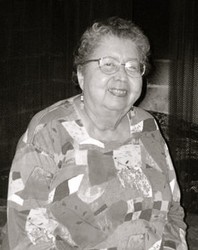Eugenia Collier’s short story challenges us to think about that moment when we transition from youth to adulthood. It’s clear that her narrator has thought about this deeply, and only after several years has she been able to put her thoughts and experiences into words. Even then, we observe her struggle, burdened with the difficulty and challenge of the task.
But, more than just recalling a watershed moment, “Marigolds” becomes a kind of treatise on what it truly means to be an adult.
Collier’s statement that “one cannot have both compassion and innocence” is deceptively challenging. Whether you agree with her, it is clear that “Marigolds” continues to grapple with complex issues along the tradition of William Blake’s “Songs of Innocence and Experience.”
Perhaps you may want to re-read “Marigolds” and think of it as an extended metaphor for several real-world situations. Intrigued? Let’s talk. Here are your resources:
You may find this information on SlideShare helpful, too:
If you want to challenge yourself, read a couple of William Blake’s poems and do a little research of your own into Blake’s examination of innocence and experience:
- Website featuring Blake’s work (highly recommended)
- Selected Poetry from Blake
- Web site about William Blake


